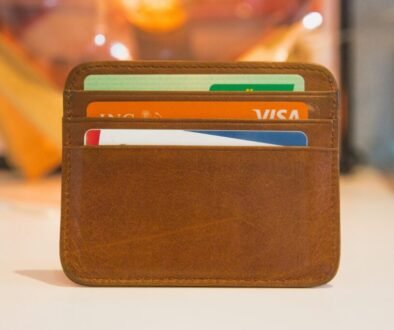Essential Tips for Immigrants: Building Credit from Scratch with Credit Cards
Moving to a new country comes with many challenges, and building credit from scratch is often one of the most daunting. But establishing credit is a vital step in securing your financial future in the U.S. A strong credit history can unlock doors, helping you secure loans, rent apartments, and even get better insurance rates. This guide will walk you through essential tips to help you start building your credit with confidence, using credit cards responsibly.
Understanding Credit and Its Importance
1. What is Credit?
Think of credit as your financial reputation. It’s your ability to borrow money or access goods and services with the promise to pay later. Your creditworthiness—how likely you are to repay what you borrow—is recorded in your credit report and summarized by your credit score. Imagine your credit score as your financial grade, where higher scores reflect stronger, more reliable financial behavior.
2. Why is Credit Important?
A good credit history and score are more than just numbers—they’re crucial for financial stability and access to opportunities. Your credit score affects your ability to:
- Get approved for loans and mortgages.
- Rent an apartment.
- Obtain lower insurance premiums.
- Secure better interest rates on loans and credit cards.
In many ways, building good credit is like planting seeds for your financial future—the effort you put in now will grow into opportunities later on.
Starting with the Right Credit Card
1. Secured Credit Cards
- Secured Credit Cards: These are excellent starter cards if you’re beginning from scratch. They require a security deposit, which usually acts as your credit limit. Using a secured credit card responsibly—making timely payments and keeping your balance low—can help you build a positive credit history. Think of it as using training wheels when learning to ride a bike. It gives you the stability you need to start your credit journey.
2. Student Credit Cards
- Student Credit Cards: If you’re a student, banks often offer student credit cards designed for people with limited or no credit history. These cards usually have lower credit limits and more lenient approval requirements, making them a practical choice for young adults just starting out.
3. Retail Store Credit Cards
- Retail Store Credit Cards: Some retail stores offer credit cards that are easier to qualify for, even if you have limited credit history. While these cards often come with higher interest rates, they can be a good starting point for building credit. Just be sure to pay off your balance in full each month to avoid high-interest charges. Picture it as a stepping stone toward stronger credit.
Applying for Your First Credit Card
1. Gather Necessary Documents
Before you apply, gather the necessary documents to make the process smoother. These typically include:
- Proof of identity (e.g., passport, driver’s license).
- Proof of address (e.g., utility bill, lease agreement).
- Proof of income (e.g., pay stubs, tax returns).
Being prepared with these documents will help you feel more confident and reduce the stress of the application process.
2. Check Eligibility Requirements
Each credit card issuer has specific eligibility requirements, such as age, residency status, and income level. Make sure you meet these criteria before applying to avoid unnecessary rejections, which can temporarily lower your credit score. It’s like checking the prerequisites before signing up for a class—you want to ensure you’re ready.
3. Start with One Credit Card
It might be tempting to apply for multiple credit cards at once, but starting with just one is the smart way to go. Use it responsibly, build your credit history, and consider applying for additional cards later when your credit score has improved. Think of it as laying the first brick in the foundation of your financial house.
Using Your Credit Card Responsibly
1. Make Timely Payments
Always pay your credit card bill on time. Late payments can lead to fees, higher interest rates, and damage to your credit score. Consider setting up automatic payments or reminders to help you stay on track. Have you set up reminders to ensure you never miss a payment? Consistency is key in building a strong credit history, just like showing up to class every day helps you succeed.
2. Keep Balances Low
Aim to keep your credit card balances low relative to your credit limit. This is known as credit utilization. Ideally, try to keep your credit utilization below 30% to maintain a healthy credit score. For example, if your credit limit is $1,000, try to keep your balance below $300. This shows lenders that you’re managing your credit well, similar to staying within your budget to keep your finances healthy.
3. Pay More Than the Minimum
Whenever possible, pay more than the minimum payment due. Paying only the minimum can result in high-interest charges and make it harder to pay off your balance. By paying more, you reduce your debt faster and save money on interest. It’s like paying off a loan early—you save money and stress in the long run.
4. Monitor Your Statements
Regularly review your credit card statements to ensure all charges are accurate. If you notice any errors or unauthorized transactions, report them to your credit card issuer immediately. Staying on top of your statements helps you catch mistakes early and protects your credit. It’s like proofreading an important document before submitting it—you catch and correct any errors before they cause problems.
Building a Good Credit History
1. Understand Credit Scores
Your credit score is a numerical representation of your creditworthiness, ranging from 300 to 850. It’s calculated based on factors such as payment history, credit utilization, length of credit history, types of credit, and recent inquiries. A higher score indicates better creditworthiness, making it easier to access credit and favorable terms. Think of your credit score as your financial GPA—it reflects your overall financial performance.
2. Diversify Your Credit
Having a mix of credit accounts, such as credit cards, installment loans, and retail accounts, can positively impact your credit score. However, only take on credit that you can manage responsibly. Overextending yourself can lead to financial stress and harm your credit. It’s similar to balancing different subjects in school—you want to excel without overwhelming yourself.
3. Keep Old Accounts Open
The length of your credit history is an important factor in your credit score. Keep older accounts open, even if you don’t use them frequently, as long as they don’t have annual fees. This adds to your credit history length and shows lenders that you have experience managing credit over time. It’s like maintaining relationships—long-term, stable connections build trust.
4. Limit New Credit Applications
Applying for multiple credit accounts in a short period can lower your credit score temporarily. Be selective about applying for new credit and do so only when necessary. Each application triggers a hard inquiry, which can slightly ding your score. Think of it as pacing yourself in a race—you don’t want to sprint too early and risk burning out.
Common Mistakes to Avoid
1. Missing Payments
Missing credit card payments can significantly damage your credit score. Always pay at least the minimum amount due on time. Setting up payment reminders or automatic payments can help you avoid this common pitfall. It’s like missing an assignment deadline—avoid it at all costs to keep your progress on track.
2. Maxing Out Credit Cards
Maxing out your credit cards can negatively impact your credit utilization ratio and your credit score. Try to keep your balances low to maintain a healthy credit profile. It’s like overloading your schedule—you want to stay within a manageable limit.
3. Ignoring Terms and Conditions
Understanding the terms and conditions of your credit card agreement is crucial. Be aware of fees, interest rates, and other important details to avoid surprises. Knowing the terms helps you make informed decisions about how to use your card. It’s like reading the syllabus at the start of a course—you need to know what to expect.
4. Neglecting to Monitor Credit Reports
Regularly check your credit reports for errors and discrepancies. You are entitled to a free credit report from each of the major credit bureaus annually. Correcting errors can help improve your credit score and ensure your credit history is accurate. Think of it as reviewing your report card—ensure everything reflects your efforts accurately.
Conclusion
Building credit from scratch as a new immigrant is a crucial step toward financial stability in the U.S. By choosing the right credit card, using it responsibly, and avoiding common mistakes, you can establish a solid credit history and improve your credit score over time. Remember, building good credit takes time and discipline, but the benefits of a strong credit profile are well worth the effort. As you continue your journey, consider exploring resources such as financial literacy courses, banking websites, and credit counseling services to deepen your understanding and enhance your financial well-being. You’re not alone—support is available every step of the way, and you’re already on the path to success!




